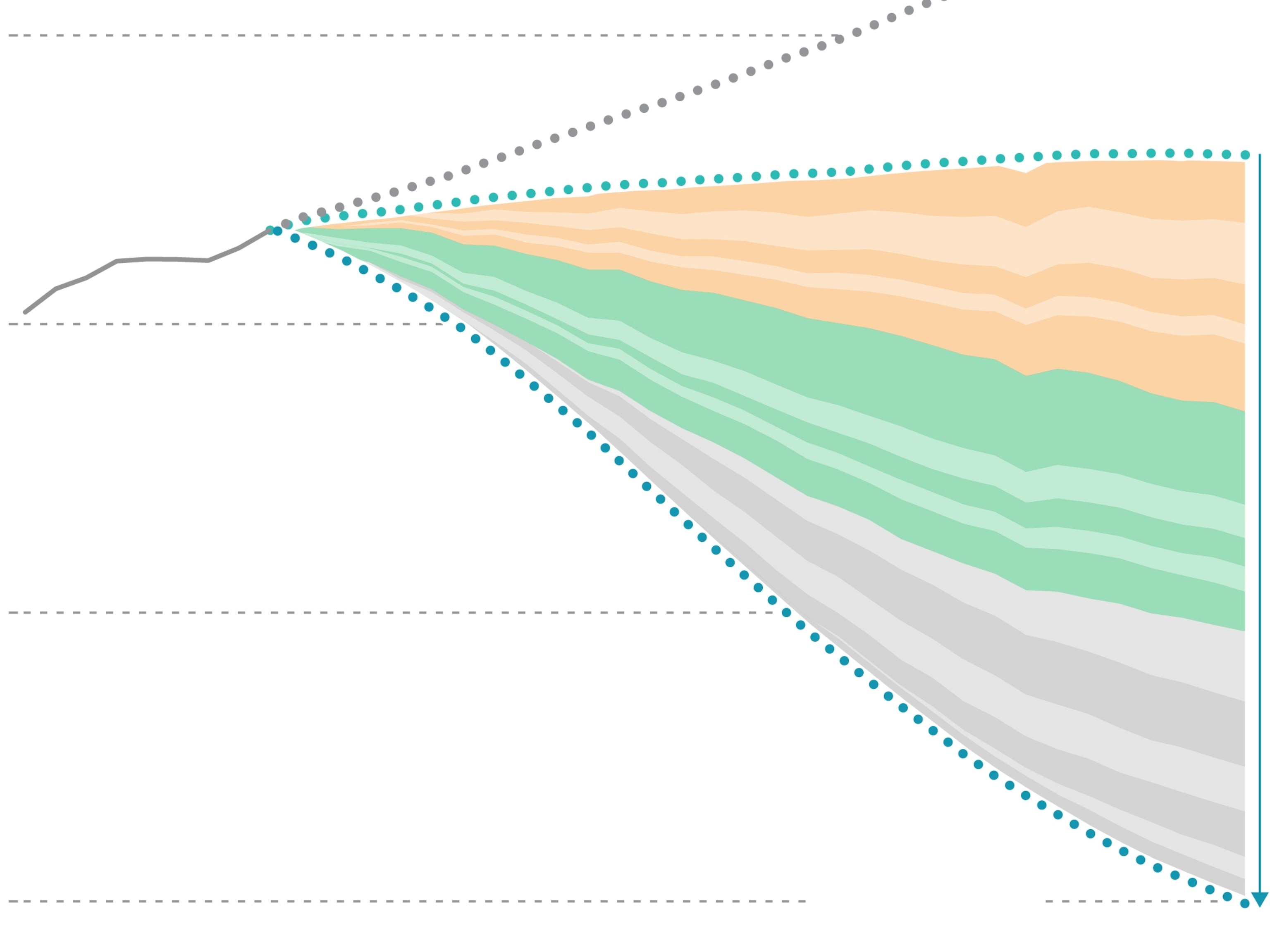
Four Ways Winter Weather Is Causing Energy Supply Problems
A massive winter storm hit much of the U.S. Tuesday, dumping heavy snowfall along the East Coast and sending temperatures plunging from 15 to 30 degrees below normal from the Mid-Atlantic region to the upper Midwest. But in addition to causing school closings and disrupting highway traffic, frigid winter weather has far-reaching effects on energy production and distribution—from slowing oil and gas wells and refineries to briefly shutting down a nuclear power plant in the Midwest because of ice.
Here are some examples of how the cold can cause problems.
Natural Gas Demand—and Prices—Soar
Extremely cold temperatures drive up demand for natural gas for heating, increasing withdrawals from underground storage facilities and driving up prices. The U.S. Energy Information Administration reported that during the week ending January 10, more than 285 billion cubic feet of gas was withdrawn, the most on record. Platts, the energy information service, reported that spot natural gas prices in the Northeast surged to all-time highs on January 21. EIA analyst Angelina LaRose said that suppliers typically withdraw from reserves during cold snaps, but that surge in demand during cold weather is bumping up against the limitations of natural gas pipeline capacity particularly in the Northeast. “The capacity going into New England is more than 85 percent utilized right now,” she said.
Propane Shortages Hit
Platts reported on January 21 that the price of propane surged to $2.45 per gallon, the highest on record and a surge of nearly 70 cents, as stocks of propane dipped to record lows for January. In Ohio, shortages prompted Gov. John Kasich proclaimed a “state of energy emergency” and lifted restrictions on driving times and working hours for truck drivers delivering propane and heating oil.
Oil and Gas Production Slows
Freezing temperatures also make it more difficult to get oil and gas out of the ground. EIA reported that so-called “freeze-offs” occurred in parts of the Marcellus Shale play in northeastern Pennsylvania in early January. Refineries, too, can suffer interruptions because of cold weather: During the deep freeze of early January, refineries from Detroit to Memphis reported equipment problems caused by the low temperatures. The problems caused a spike in gasoline prices in the Midwest.
Nuclear Plants Get Iced In
At Nebraska’s Fort Calhoun nuclear power plant, below-freezing temperatures earlier this month caused an icy buildup on one of the six sluice gates that control the flow of Missouri River water, which is used to cool and condense steam from the plant’s turbines. When workers couldn’t close the gate, the Omaha Public Power District was forced to temporarily shut down the plant. “We’re still in the middle of studying how exactly it happened,” said Power District spokesman Jeff Hanson. He said that the plant has barriers in place to protect the cooling system from river ice, but that officials are investigating the possibility that a leaking pipe over the sluice gate caused the ice buildup. In January 2010, one of the three reactors at the Salem nuclear power plant in New Jersey was forced to shut down briefly when ice got into its cooling system.
Related Topics
You May Also Like
Go Further
Animals
- Why this rhino-zebra friendship makes perfect senseWhy this rhino-zebra friendship makes perfect sense
- When did bioluminescence evolve? It’s older than we thought.When did bioluminescence evolve? It’s older than we thought.
- Soy, skim … spider. Are any of these technically milk?Soy, skim … spider. Are any of these technically milk?
- This pristine piece of the Amazon shows nature’s resilienceThis pristine piece of the Amazon shows nature’s resilience
Environment
- This pristine piece of the Amazon shows nature’s resilienceThis pristine piece of the Amazon shows nature’s resilience
- Listen to 30 years of climate change transformed into haunting musicListen to 30 years of climate change transformed into haunting music
- This ancient society tried to stop El Niño—with child sacrificeThis ancient society tried to stop El Niño—with child sacrifice
- U.S. plans to clean its drinking water. What does that mean?U.S. plans to clean its drinking water. What does that mean?
History & Culture
- Séances at the White House? Why these first ladies turned to the occultSéances at the White House? Why these first ladies turned to the occult
- Gambling is everywhere now. When is that a problem?Gambling is everywhere now. When is that a problem?
- Beauty is pain—at least it was in 17th-century SpainBeauty is pain—at least it was in 17th-century Spain
- The real spies who inspired ‘The Ministry of Ungentlemanly Warfare’The real spies who inspired ‘The Ministry of Ungentlemanly Warfare’
- Heard of Zoroastrianism? The religion still has fervent followersHeard of Zoroastrianism? The religion still has fervent followers
Science
- Here's how astronomers found one of the rarest phenomenons in spaceHere's how astronomers found one of the rarest phenomenons in space
- Not an extrovert or introvert? There’s a word for that.Not an extrovert or introvert? There’s a word for that.
- NASA has a plan to clean up space junk—but is going green enough?NASA has a plan to clean up space junk—but is going green enough?
- Soy, skim … spider. Are any of these technically milk?Soy, skim … spider. Are any of these technically milk?
- Can aspirin help protect against colorectal cancers?Can aspirin help protect against colorectal cancers?
Travel
- What it's like to hike the Camino del Mayab in MexicoWhat it's like to hike the Camino del Mayab in Mexico
- Follow in the footsteps of Robin Hood in Sherwood ForestFollow in the footsteps of Robin Hood in Sherwood Forest
- This chef is taking Indian cuisine in a bold new directionThis chef is taking Indian cuisine in a bold new direction
- On the path of Latin America's greatest wildlife migrationOn the path of Latin America's greatest wildlife migration
- Everything you need to know about Everglades National ParkEverything you need to know about Everglades National Park




